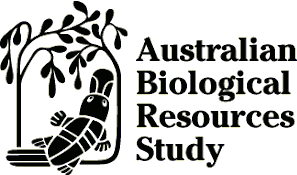Australian Tropical Rainforest Plants - Online edition
Lophostemon confertus (R.Br.) Peter G.Wilson & J.T.Waterh.
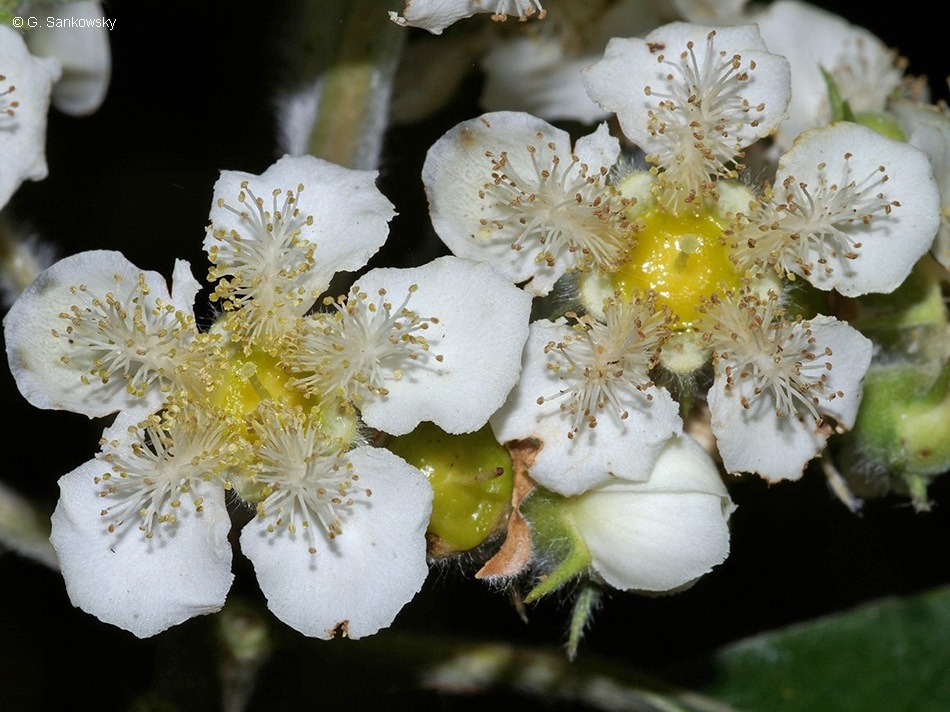
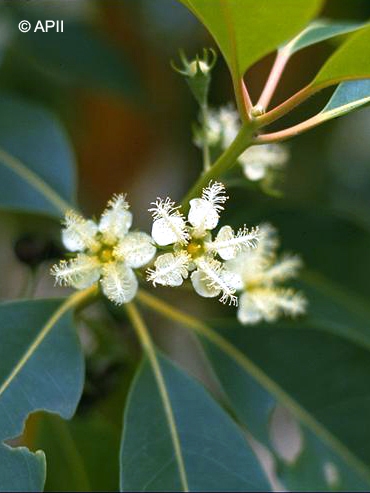



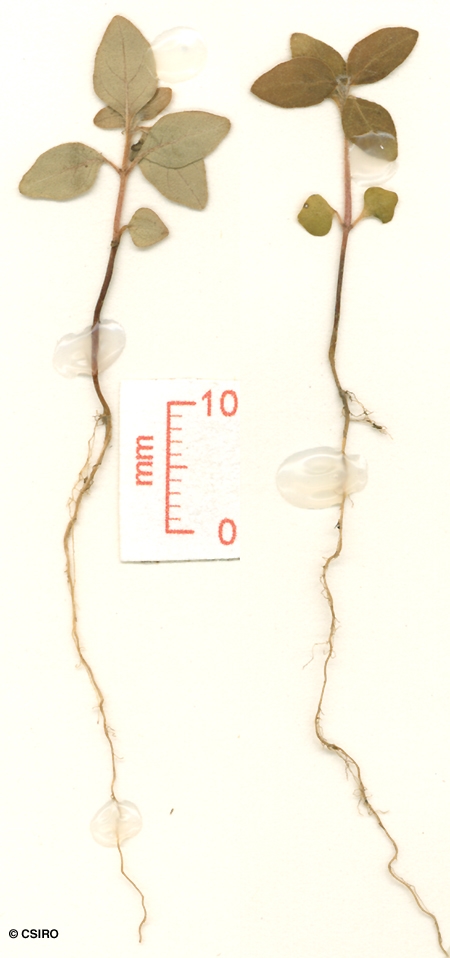
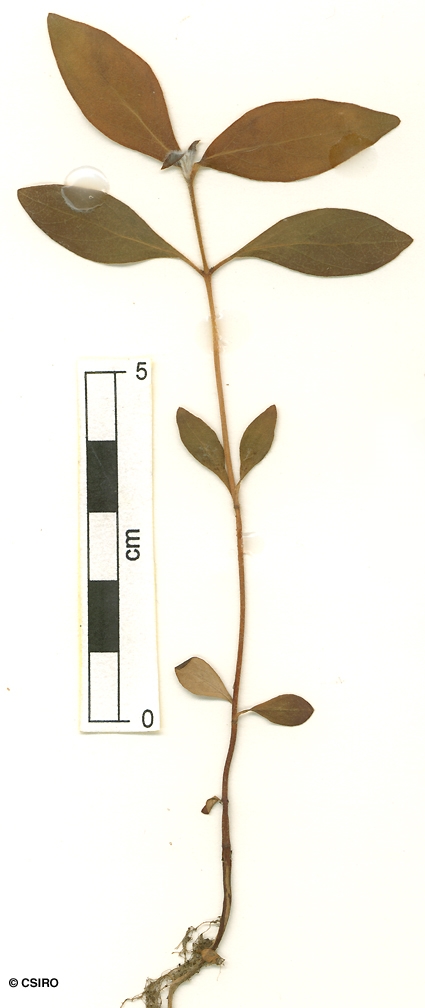
Wilson, Peter G. & Waterhouse, J.T. (1982) Australian Journal of Botany 30: 424.
Vinegartree; Box, Queensland; Pink Box; Box Scrub; Box, Pink; Box, Brisbane; Box, Brush; Brush Box; Brisbane Box; Brisbane Box Tree; Queensland Box; Scrub Box
Leaf blades about 7-15 x 2.5-4.5 cm, crowded together in groups of about 3-5 at the ends of twigs. Seldom more than one oil dot per reticulation. Conspicuous vegetative buds generally terminating the twigs. Young shoots clothed in pale, prostrate, silky hairs. Young shoots produce a milky exudate when broken.
Fruit about 10-15 mm diam., included in the calyx tube (hypanthium). Seeds linear, about 2-3 mm long.
Cotyledons shortly ovate to triangular, about 2-3 mm long with a few very small oil dots visible only with a lens. At the tenth leaf stage: leaf blade +/- elliptic, apex acute, both the upper and lower surfaces clothed in long, white or pale hairs; oil dots numerous, just visible to the naked eye; petioles and terminal bud tip densely clothed in white or pale, erect hairs. Seed germination time 4 to 14 days.
Endemic to Australia, occurs in NEQ, CEQ and southwards to coastal central New South Wales. Altitudinal range in NEQ from 150-850 m. Grows in wet sclerophyll forest, on rain forest margins and in rain forest which is advancing into eucalypt forest.
Food plant for the larval stages of the Common Red-eye, Rare Red-eye and Eastern Flat Butterflies. Common & Waterhouse (1981).
A very popular flooring timber in New South Wales and southern Queensland but seldom used in northern Queensland. Also used for wharf decking. Swain (1928).
Timber formerly use as cobbler's lasts. Swain (1928).




